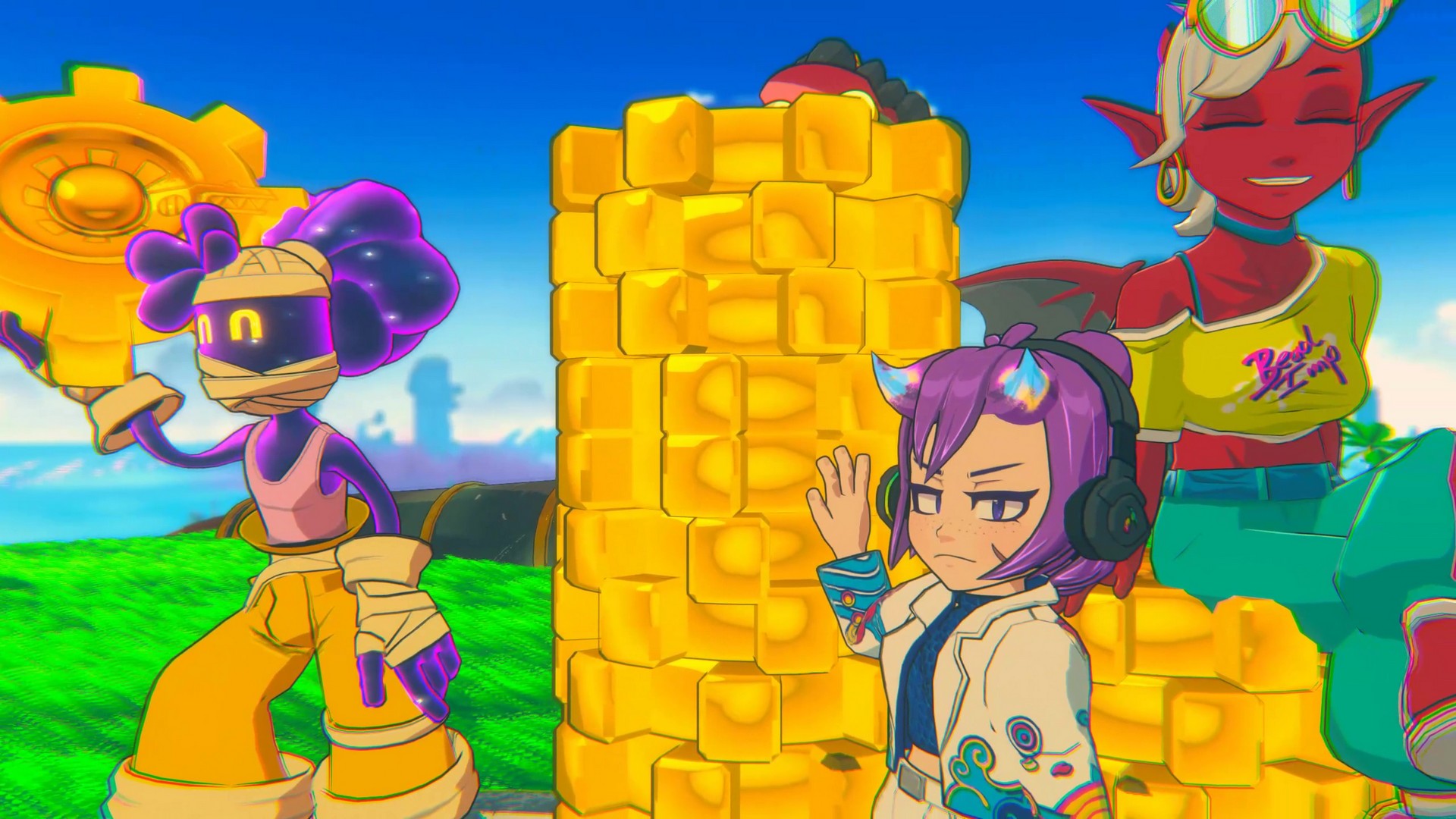Rue Valley is a time looping RPG that's best off leaning away from Disco Elysium comparisons, and getting Monkey Island with it instead
Indie Spotlight | Can you escape the valley?
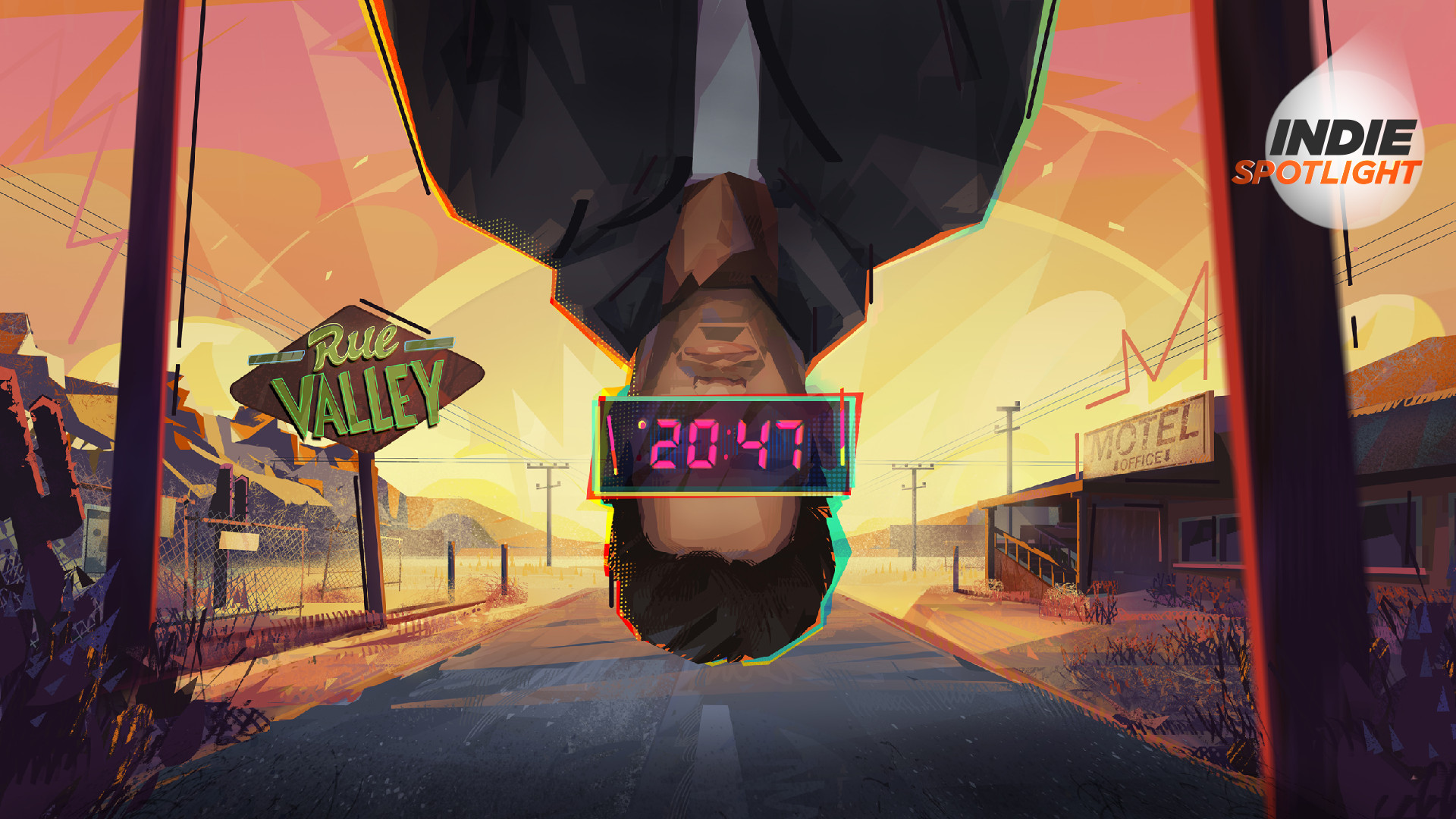
Weekly digests, tales from the communities you love, and more
You are now subscribed
Your newsletter sign-up was successful
Want to add more newsletters?

Every Friday
GamesRadar+
Your weekly update on everything you could ever want to know about the games you already love, games we know you're going to love in the near future, and tales from the communities that surround them.

Every Thursday
GTA 6 O'clock
Our special GTA 6 newsletter, with breaking news, insider info, and rumor analysis from the award-winning GTA 6 O'clock experts.

Every Friday
Knowledge
From the creators of Edge: A weekly videogame industry newsletter with analysis from expert writers, guidance from professionals, and insight into what's on the horizon.

Every Thursday
The Setup
Hardware nerds unite, sign up to our free tech newsletter for a weekly digest of the hottest new tech, the latest gadgets on the test bench, and much more.

Every Wednesday
Switch 2 Spotlight
Sign up to our new Switch 2 newsletter, where we bring you the latest talking points on Nintendo's new console each week, bring you up to date on the news, and recommend what games to play.

Every Saturday
The Watchlist
Subscribe for a weekly digest of the movie and TV news that matters, direct to your inbox. From first-look trailers, interviews, reviews and explainers, we've got you covered.

Once a month
SFX
Get sneak previews, exclusive competitions and details of special events each month!
Part RPG, part adventure game, Rue Valley is a story that meditates on the inherent repetition of all gaming. Beyond titles in which replaying is the point – roguelikes such as Hades 2, or arcade games like Lumines Arise – most every game is about retrying in one way or another. Anyone who's lost all their lives in Super Mario Bros, or had to re-listen to the same barks after failing a firefight in a tomb in Uncharted can attest to that.
Rue Valley, from developer Emotion Spark Studio, is all about repetition, and trying again – but every loop is a part of the plot, shared by player character Eugene Harrow as well as simply you, the player. As his mandated therapy session draws to a close – which, for some reason, is in a motel room in the middle of nowhere – he ends up trapped in a time loop from 8:00pm to 8:47pm. Why? And what to do about it? Both you and Eugene need to figure that out, one loop at a time.
Groundhog wild
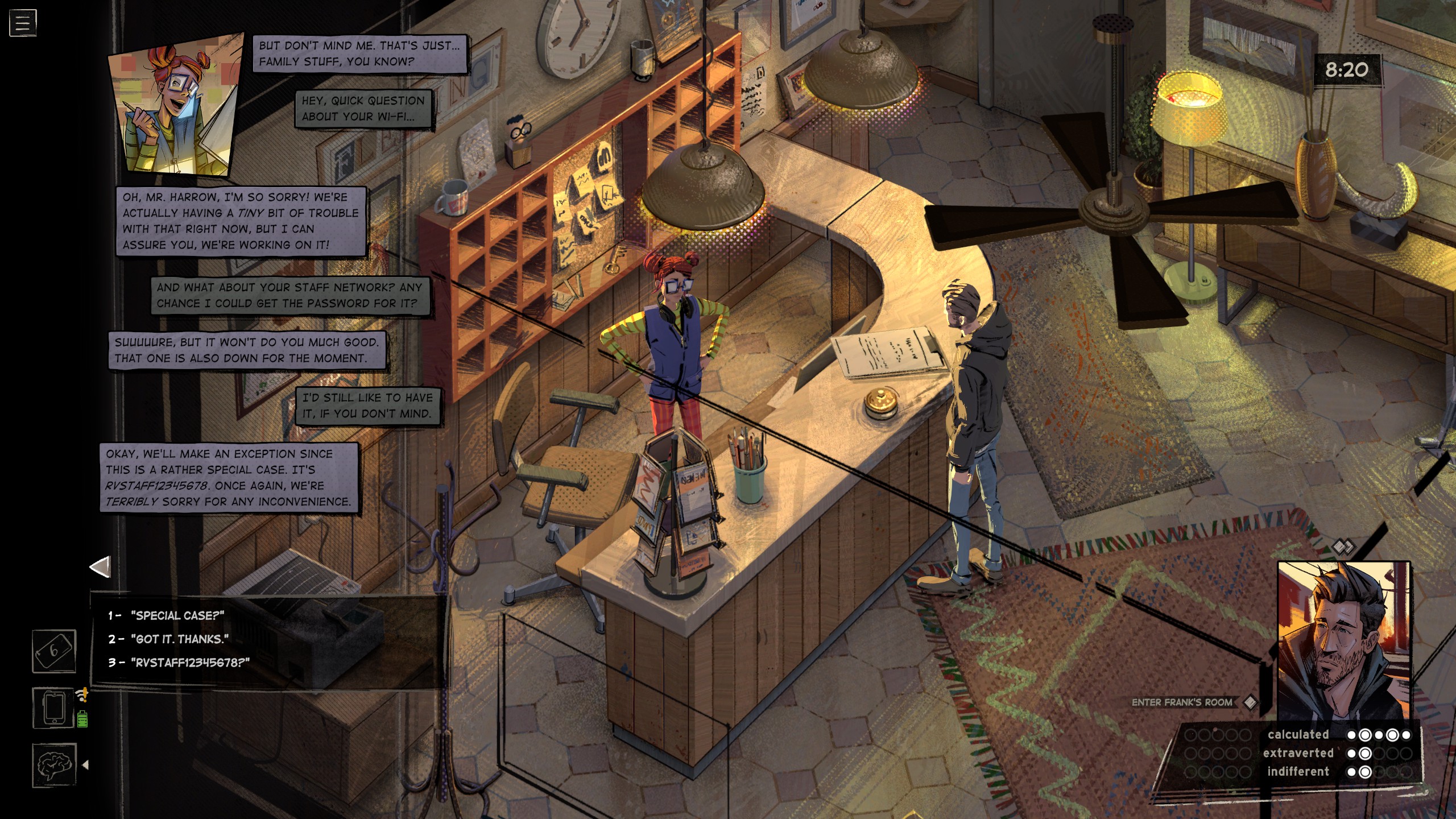
Comparisons between Rue Valley and Disco Elysium are obvious – from its presentation, to its cynical stat systems, and even its attempts to deliver similar over-the-top philosophical musings (which often fall flat). To be honest, it's not a favorable side-by-side, and it's unfortunate that's the first impression it makes, almost deliberately.
Rue Valley simply isn't a very good RPG, and I wouldn't have minded if those mechanics had been stripped away entirely. Having Eugene's character sheet focused entirely on negative traits, such as a push and pull between 'Impulsive' and 'Calculated' with stops along the way for, say, 'Paranoid' and 'Indecisive', is a unique touch. But it can also become annoying fast, with a lot of Eugene's negativity blocking off conversation choices.
Similarly, it can feel negative as a player to encounter barriers like this – which, yes, is part of the point of playing a character grappling with all these issues – but it just becomes irksome and can feel very binary. None of these traits are weaved in as elegantly as Disco Elysium's. With fewer true branches as well, Rue Valley awkwardly has to juggle these without getting in the way of the most straightforward plot that's playing out, making them feel redundant anyway.
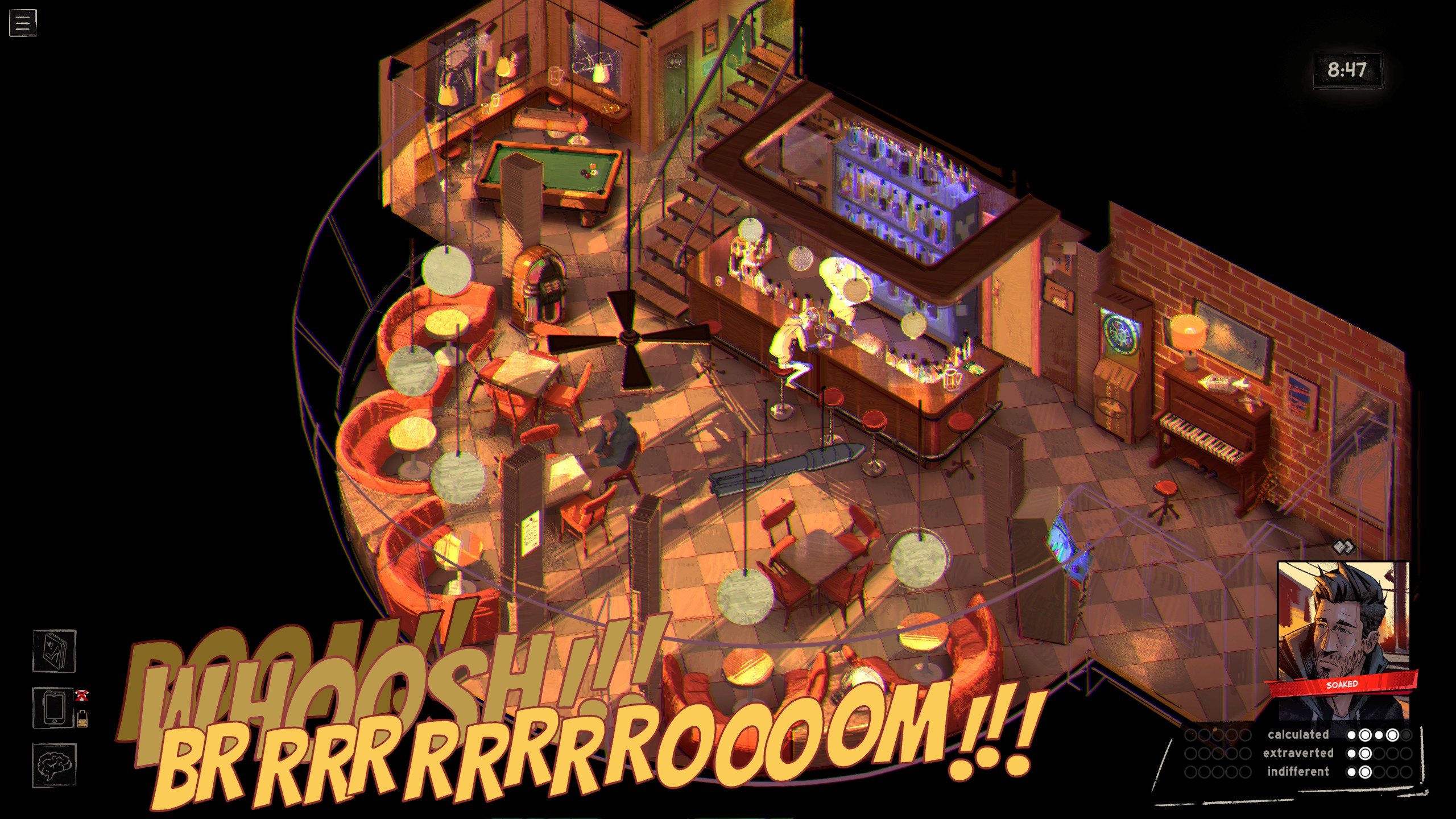
I grumble a bit here only to set expectations. Despite borrowing a lot from Disco Elysium, Rue Valley isn't truly playing in the same arena, and is best approached with that in mind. Once the plot kicks off and you and Eugene get used to the idea of being in a time loop, this golden middle chunk of play becomes a wonderful adventure game all about poking at the edges of time looping possibilities and knowledge gathering. Less Harry DuBois, and more depressed Guybrush Threepwood, please – there are some solid Monkey Island style adventure gaming hooks to be had in Rue Valley.
With an investigation-style mindmap, Eugene keeps track of the consistent parts of each near-hour loop of his exploration of the titular valley. Its residents live in the shadow of a space research facility, all while struggling to overcome mistakes of the past that have continued to haunt them, from a tangled political history of rival families, through to a tainted water supply that makes taps unsafe for use. A close knit community, everyone has connections with everyone else, and even if Eugene can only nail a few new bits of information each loop, they slowly form a bigger picture.
Weekly digests, tales from the communities you love, and more
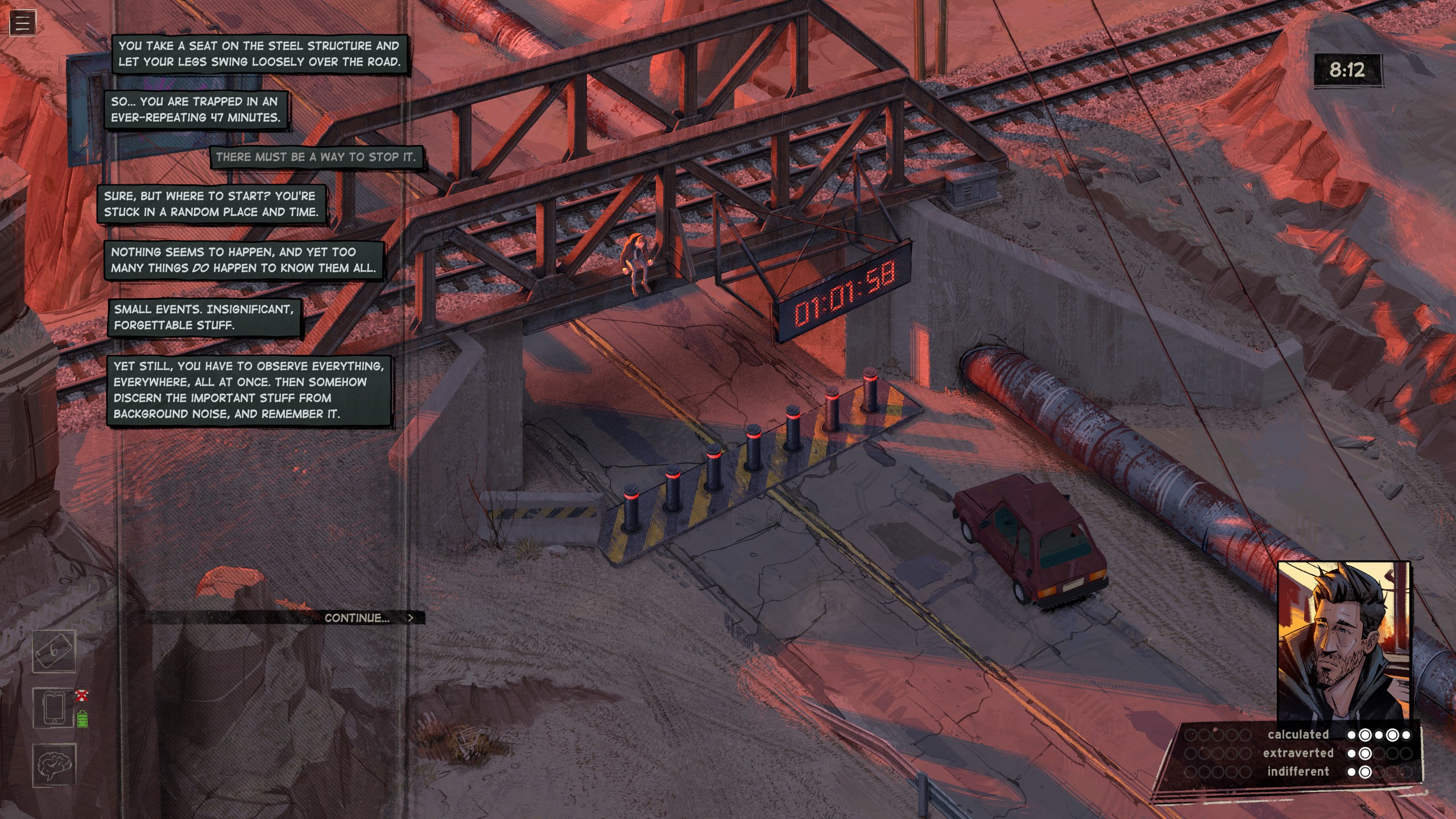
Less Harry DuBois, and more depressed Guybrush Threepwood, please – there are some solid Monkey Island style adventure gaming hooks to be had in Rue Valley.
Early on, I find it genuinely compelling to find a place for Eugene to simply sit in each major chunk of map, resting on which meaning he can keep track of who moves where for that zone. Building a picture of the data points that are in play, then filling out why people are moving this way is a lot of fun. Especially in the middle of the game as you pull at so many threads, there's lots to nose around, and getting used to how to shortcut certain actions reflects an engaging level of mastery. Knowing just how to nab the motel keycard that unlocks a bunch of doors is a great feeling, whittling down a whole series of quests to track it down into one simple action you know how to pull off every loop. Wrangling time only as a resource and not a real-time consideration helps to feel like you're strategizing – it's similar in execution to the system I loved in my The Seance at Blake Manor review.
Getting all that knowledge in order really does form a strong middle section of Rue Valley that I'm quite fond of. It's a shame that, like the awkward beginning, it ends up coming apart at the seams by the end. With avenues of investigation pared down, it settles into a late game rhythm of having you wait around for loops to end constantly, pushing you between different furthest limits of the map in different directions repeatedly so you can only really do one thing at a time. That's the danger of a time loop – the possibilities are tantalizing, and I will treasure them, but they risk wearing you down time after time. But I'll always have fond memories of this valley, and exploring its limits.
Rue Valley is out now on PC. For more recommendations, head on over to our Indie Spotlight series.

Games Editor Oscar Taylor-Kent brings his years of Official PlayStation Magazine and PLAY knowledge to the fore. A noted PS Vita apologist, he's also written for Edge, PC Gamer, SFX, Official Xbox Magazine, Kotaku, Waypoint, and more. When not dishing out deadly combos in Ninja Gaiden 4, he's a fan of platformers, RPGs, mysteries, and narrative games. A lover of retro games as well, he's always up for a quick evening speed through Sonic 3 & Knuckles or yet another Jakathon through Naughty Dog's PS2 masterpieces.
You must confirm your public display name before commenting
Please logout and then login again, you will then be prompted to enter your display name.
